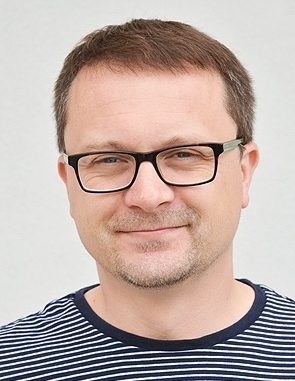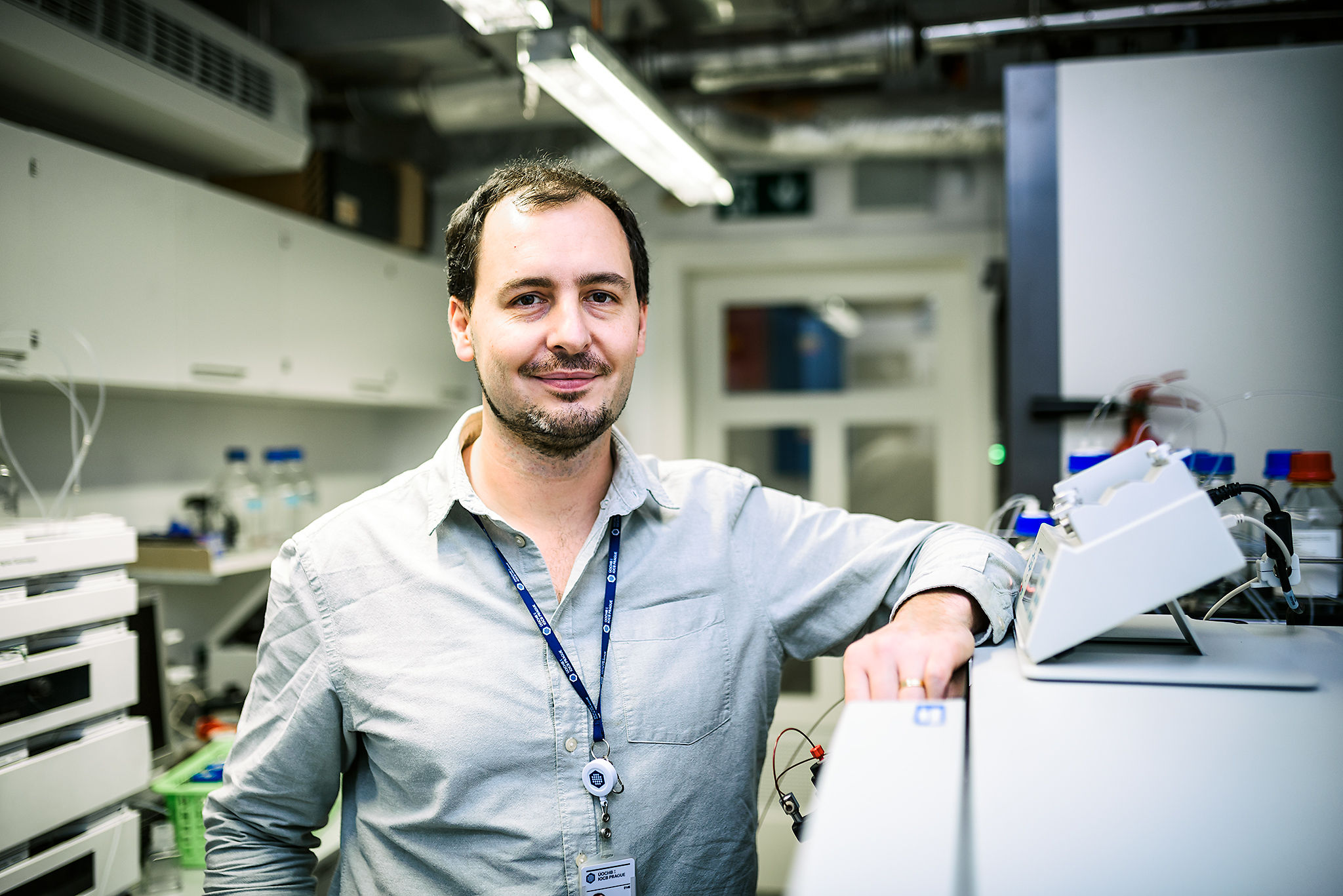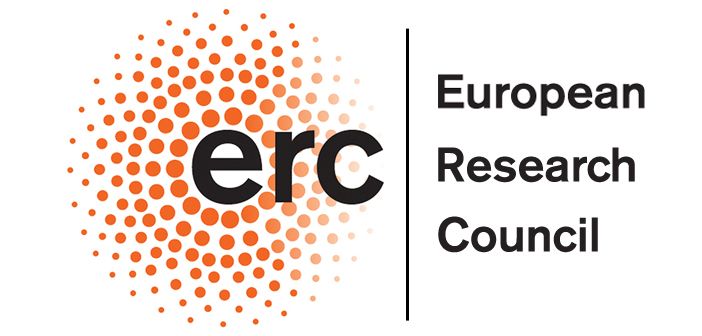
The European Research Council (ERC) has announced the recipients of its ERC Starting Grants, the goal of which is to help ambitious younger researchers launch their own projects, form their teams and pursue their best ideas. Two of the four grants going to the Czech Republic were awarded to Hana Cahová and Tomáš Slanina of the Institute of Organic Chemistry and Biochemistry of the Czech Academy of Sciences. Both will receive five-year grants for approximately 1.5 million euros.
“The two ERC Starting Grants for Hana Cahová and Tomáš Slanina are fantastic news,” says Zdeněk Hostomský, director of IOCB Prague. "Together with the earlier ERC funding for Milan Vrábel, this confirms that we’re on the right track in how we choose talented young scientists with international experience and enable them to establish their own independent research group. They have the freedom to tackle ambitious projects with the potential to achieve big results and make substantial contributions to the advancement of world science, and I very much look forward to the discoveries their work will produce in the coming years."
Uncovering the mystery of RNA caps
Hana Cahová, who heads the junior research group Chemical Biology of Nucleic Acids, will receive an ERC Starting Grant for a project entitled “Non-Canonical RNA Caps – Cellular Reaction to Environment and Stress”. The goal of her project is to uncover the mystery of molecules occurring at the end of RNA in cells and their role in cellular reaction to stress conditions.
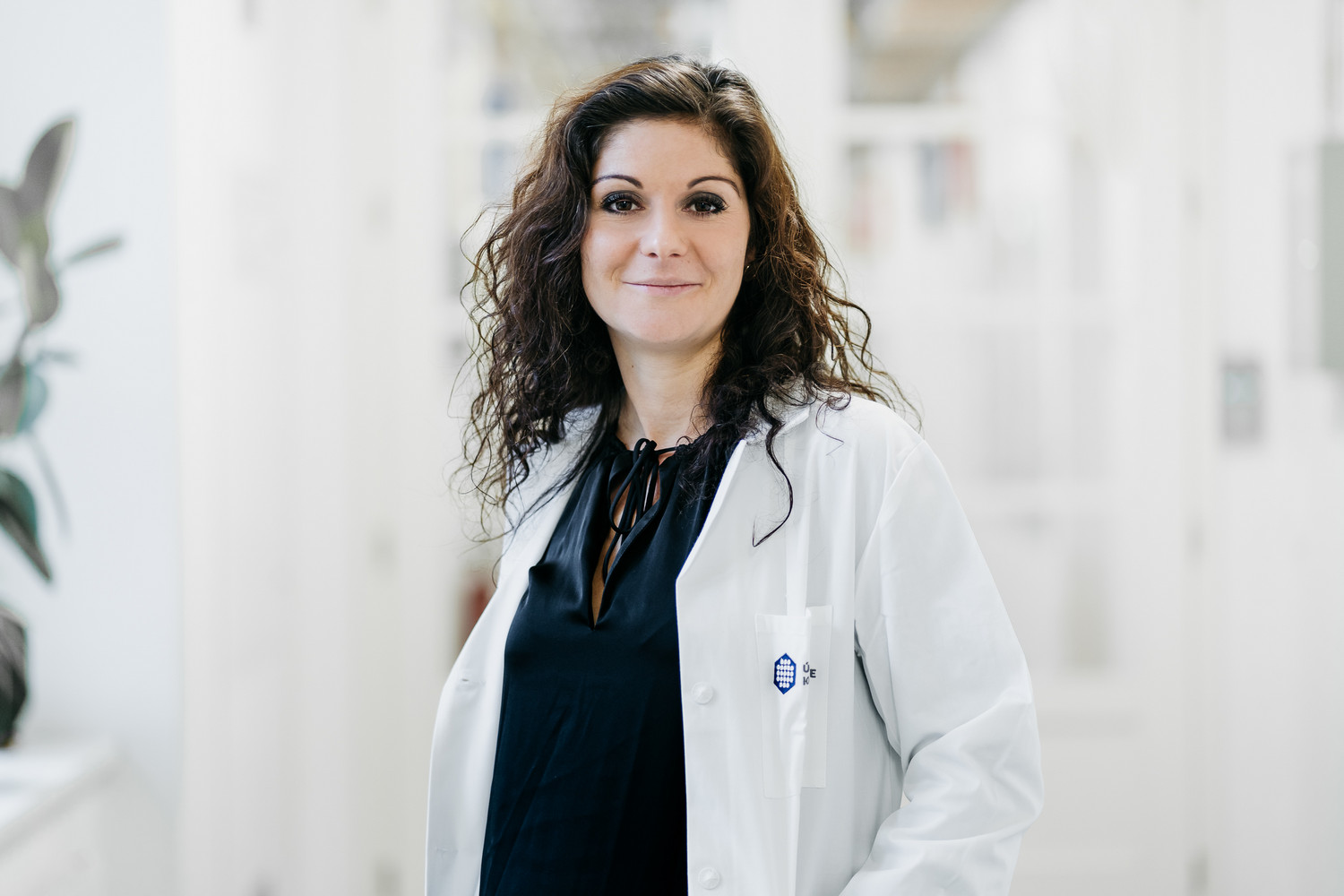
These molecules, known as RNA caps, are very important structures at the end of RNA strands that protect the RNA against degradation from cellular enzymes. Presumably, the caps have other important functions as well, such as helping cells respond to their environment and stress conditions. Nonetheless, studying them is very difficult because they are not easily identified in cells. Hana Cahová and her team at IOCB Prague are developing new techniques that make it easier to capture these structures and shed light on the partners they react with and how. This will help understand their metabolism and their function in cellular reaction to stress conditions.
“This prestigious grant intended for research on ambitious and occasionally risky hypotheses will allow us to explore ideas that only a few years ago would have been considered unprovable and unexplorable,” says Hana Cahová. “Revealing the role of RNA caps will contribute to our understanding of the cellular mechanisms triggered by stress, which offers a wide spectrum of possible applications.”
The project builds on earlier work by Dr. Cahová’s group that led to publication of a paper in Nature Communications. For more about the discovery, go here.

Storing energy in chemical bonds
Tomáš Slanina, who heads the junior research group Redox Photochemistry, will receive an ERC Starting Grant for a project entitled “Storage of Electrons into Chemical Bonds: Towards Molecular Solar Electrical Batteries”. In his project, Tomáš Slanina will focus on one of the biggest complications in the mass transition to sustainable energy sources, i.e. the possibility of stabilizing fluctuating production of solar energy and its efficient storage.
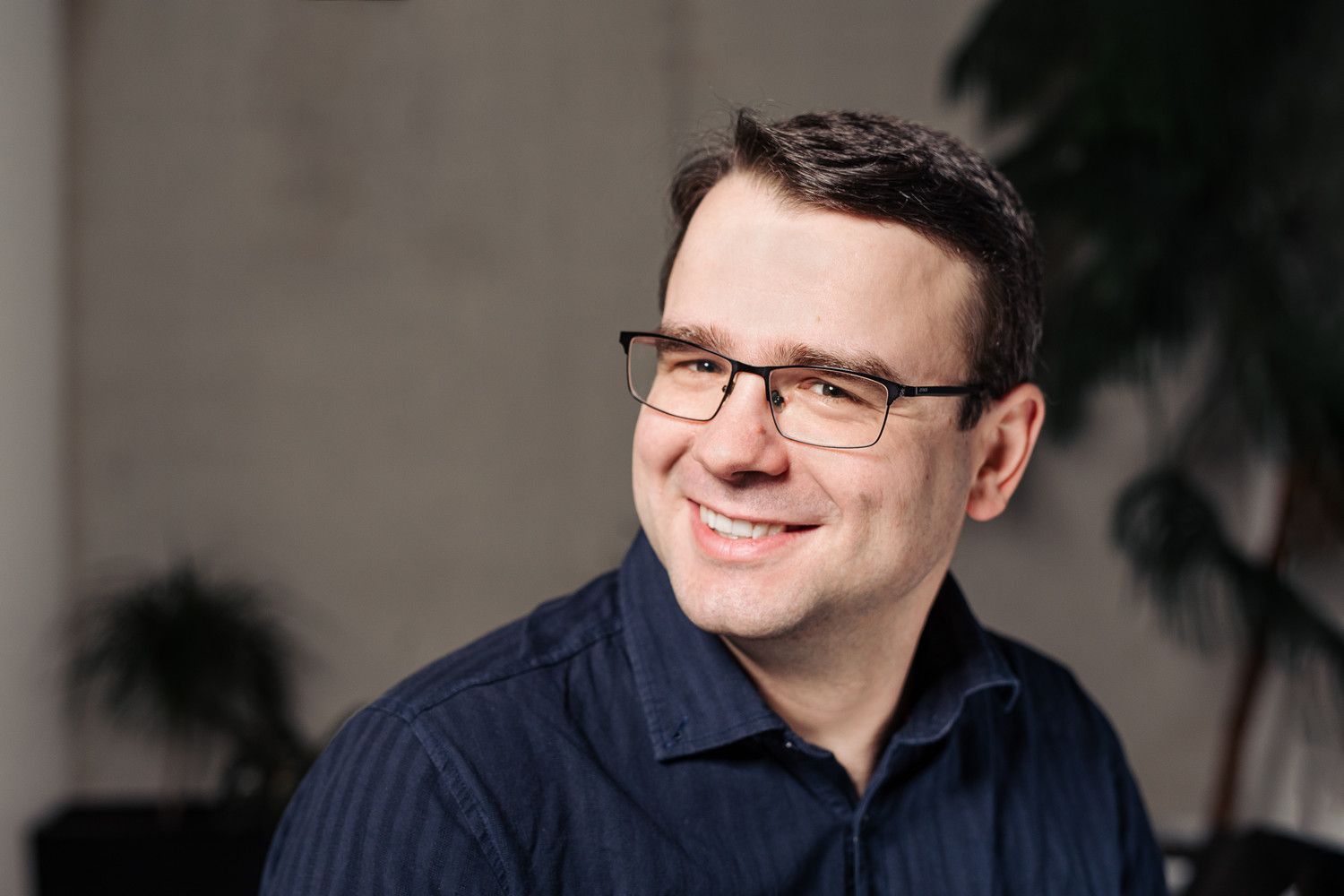
He and his team are developing a molecular system, called SOLBATT, for the transformation of light energy into chemical bonds and its subsequent conversion to electrical current through the use of organic redox switches, i.e. small molecules that react to light by forming a chemical bond in which they store electrons. On the basis of an external stimulus, redox switches can split this bond again and release the stored electrons in the form of electrical energy.
“The ERC grant will allow us to fully develop an idea that came to me some five years ago and hasn’t let me sleep since. The deeper our research group delves into the matter, the more interesting the patterns and behaviors we discover,” says Dr. Slanina. “The five-year grant gives us the opportunity to focus on fundamentally new methods with big potential to advance our knowledge of the production, storage, and release of solar electric energy.”
Storing energy directly in chemical bonds holds immense potential. It represents a new way to store electricity directly in the place of its creation using a single solar battery. The use of such a solution in organic solar panels will help stabilize fluctuations in the production of solar energy.
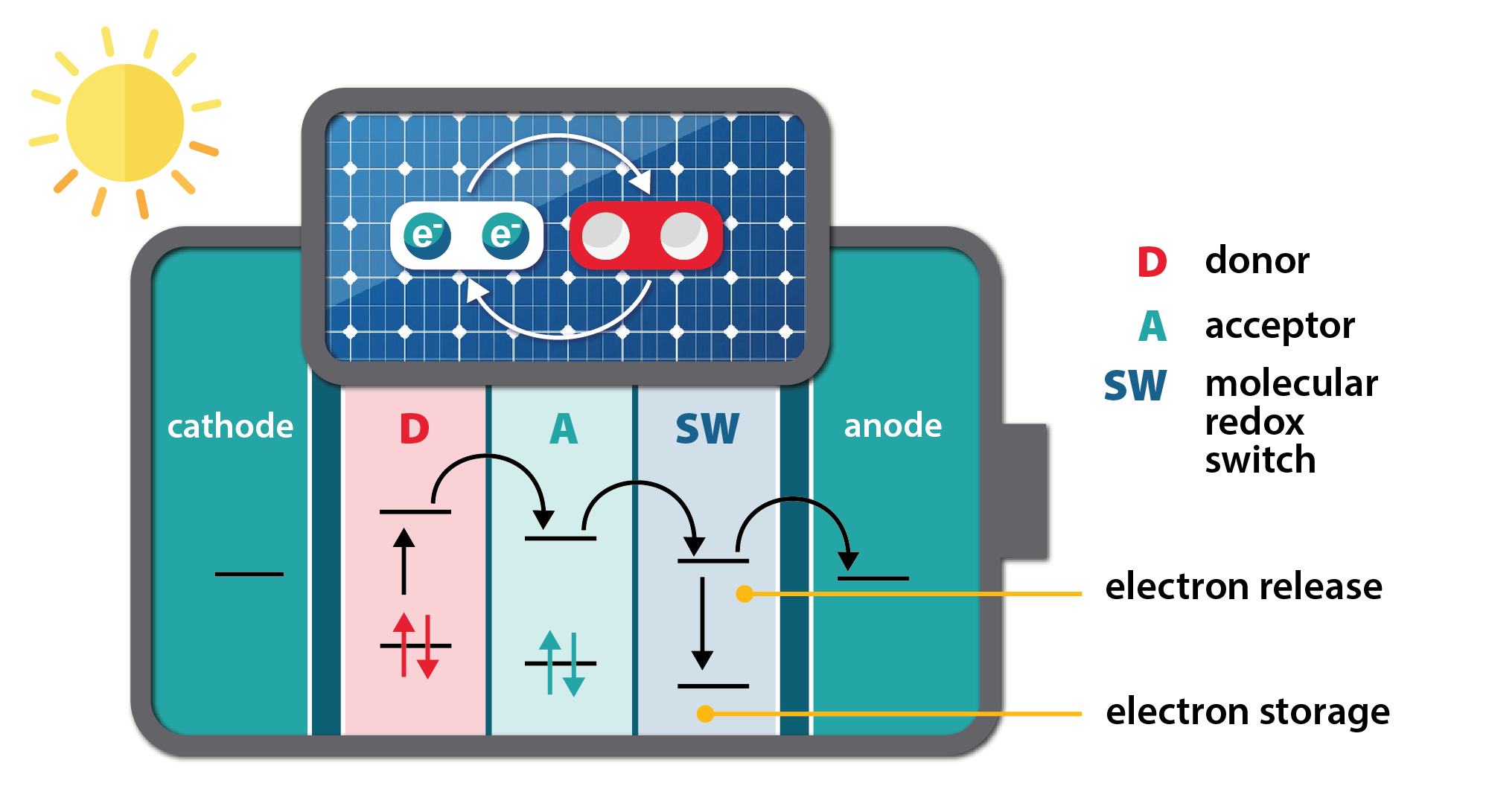
Hana Cahová, PhD, heads the Chemical Biology of Nucleic Acids junior research group at IOCB Prague, where she specializes in the study of chemical structures of RNA in viruses, bacteria, and higher organisms. She studied organic chemistry at the University of Chemistry and Technology Prague and earned her doctorate under the supervision of Prof. Michal Hocek of IOCB Prague. From 2010 to 2013, she worked as a postdoc at Heidelberg University in the group of Prof. A. Jäschke, where she was awarded the prestigious Humboldt Research Fellowship. In 2015, she received the Otto Wichterle Award from the Czech Academy of Sciences, and in 2016 she won the Alfred Bader Award in bioorganic chemistry for young scientists. In 2018, she received a Neuron Award for young scientists.
Tomáš Slanina, PhD, heads the Redox Photochemistry junior research group at IOCB Prague, where he specializes in organic and physical organic chemistry as well as in photochemistry, a discipline focusing on the interactions between small molecules and light. His research is primarily devoted to the development of new methods for controlling chemical and redox processes using visible light, the development of new photochemical and redox switches and photoactivatable molecules. Tomáš Slanina studied organic chemistry at Masaryk University in Brno and earned his doctorate from the University of Regensburg and Masaryk University in Brno. He has undertaken internships and postdoctoral fellowships at the University of Kansas, the University of Strasbourg, Goethe University Frankfurt, and Uppsala University in Sweden, among others. In 2016, he was awarded a prestigious postdoctoral grant from the Experientia Foundation. In 2019, he won the Alfred Bader Award in organic chemistry, and in 2021 he received the Otto Wichterle Award from the Czech Academy of Sciences.
